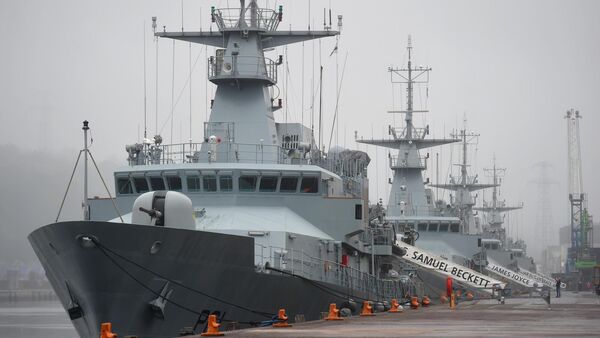Navy left with two vessels to patrol as ships put on ‘operational reserve’
The naval service has been forced to place two more of its ships on ‘operational reserve’ due to its staffing crisis, the Irish Examiner understands.
The move means the navy has been left with just two vessels, LÉ Samuel Beckett and LÉ William Butler Yeats, to patrol 437,500sq km of waters in our exclusive economic zone.
Patrols due to be carried out by LÉ James Joyce have been suspended until December, while the LÉ George Bernard Shaw will not undertake any more patrols this year, sources have told the Irish Examiner. The ships were commissioned in 2015 and 2018 respectively and cost a combined €140m.
It is understood the decision to put the ships on ‘operational reserve’ was made by navy chiefs due to a number of factors, including the lack of specialists available to crew them.
The Defence Forces said it does not provide information “on fleet disposition for security reasons”.
The Department of Defence said “a strategic decision” had been taken to streamline operations.
Independent senator Gerard Craughwell, a former Defence Forces member, said the move is “deeply disturbing”.
“If two more ships have been put in operational reserve we’ll only have two left,” said Mr Craughwell.
We’re an island nation and given the current geopolitical situation, how is it credible to say a two-ship navy can monitor our fisheries, underwater cables, and carry out drug interdiction?”
In 2016, the navy had eight ships in operation but has been forced to cut that number in the intervening years due to a shortage of personnel.
The Irish Examiner understands the navy’s ‘effective strength’ has now fallen to below 700. Figures supplied by the Defence Forces show that 92 enlisted personnel left the service between the end of July 2022 and the end of July this year.
The Department of Defence acknowledged problems with retention and recruitment but said “a range of initiatives have been implemented with a view to addressing these challenges”.
